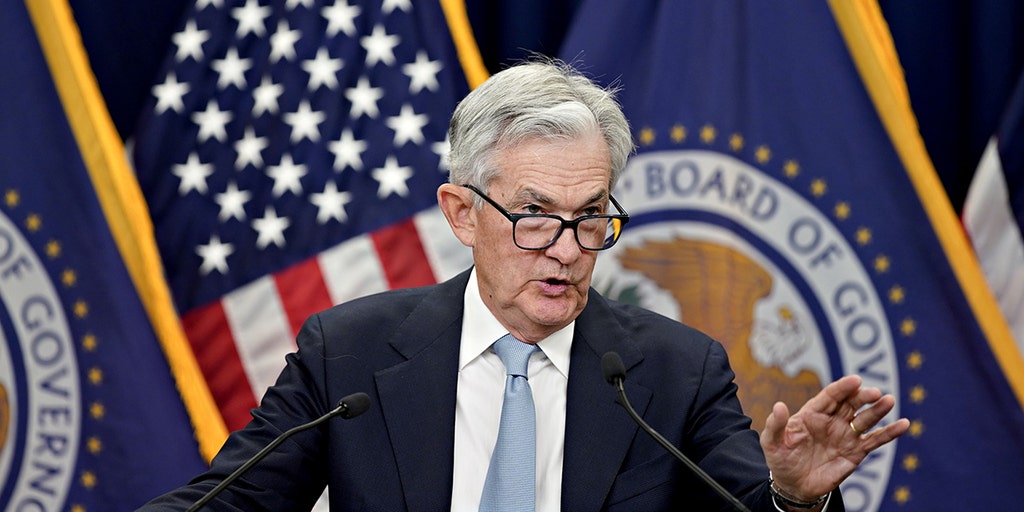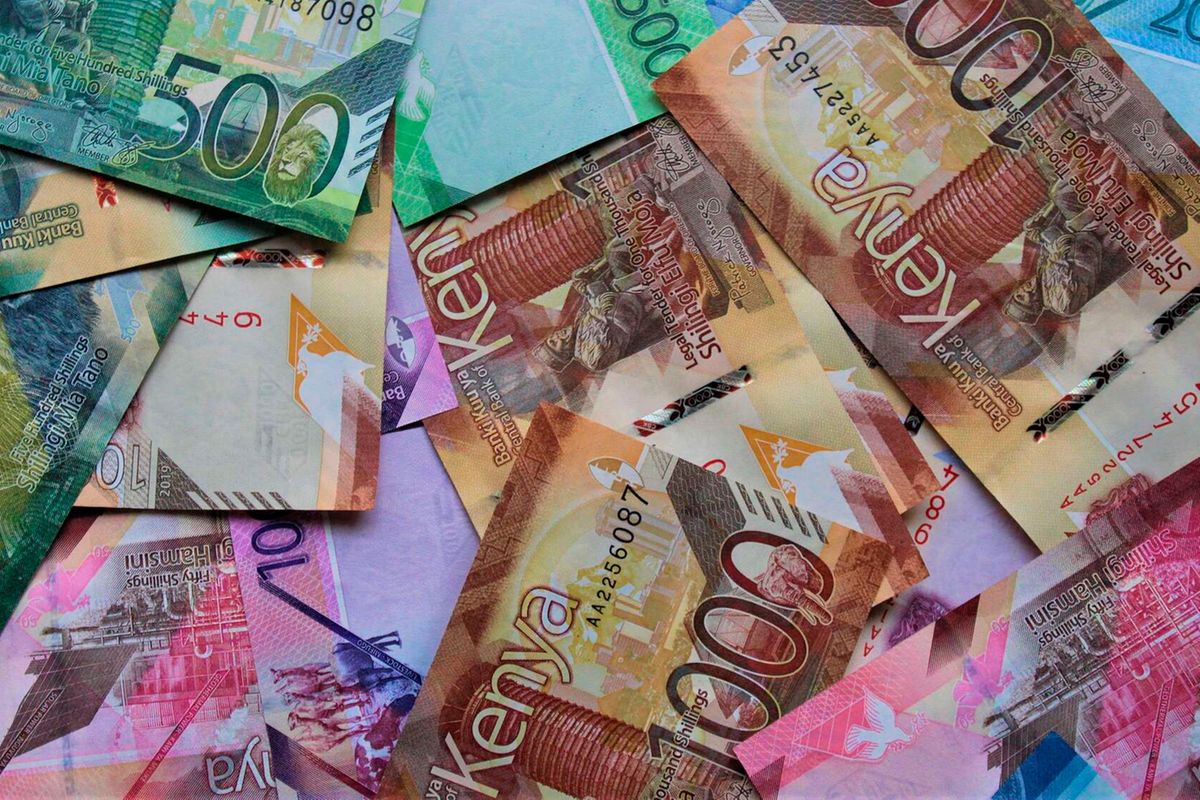Warren Buffett proposed a legislative approach to address the US deficit by making all sitting members of Congress ineligible for re-election if there is a deficit of more than three percent of GDP, emphasizing the need for fiscal responsibility and aligning lawmakers' incentives with the nation's financial health.

Buying an affordable home in the US has become increasingly difficult since 2020, with 22 states and Washington, DC, now requiring a six-figure household income to comfortably afford a median-priced home, compared to just six states and the District of Columbia in January 2020, according to a new analysis from Bankrate.com. The lack of affordability is mainly due to home price appreciation surpassing wage growth, resulting in a scarcity in housing supply and increased mortgage rates, causing existing homeowners to hesitate in selling and driving up prices.

Growth in the U.S. services sector slowed in March, with the supplier deliveries index reaching a record low, while the gauge of input costs dropped to a four-year low, potentially easing concerns over inflation and spurring debate on interest rate reduction.

The Federal Reserve is considering rate cuts to control inflation, but historical data shows that it is difficult to predict the impact on the economy and whether it will lead to a recession or not.
China's gloomy economic outlook is based on misconceptions, while economist Nicholas R. Lardy predicts that China will outpace the US in growth and surpass its nominal GDP in a decade, driven by factors such as the appreciation of the yuan and increased investment in various sectors.
Despite positive economic indicators such as a strong stock market, low unemployment rates, and growing GDP, nearly half of voters say their financial situation is getting worse, suggesting a disconnect between economic prosperity and individual financial well-being.

Canada is struggling with productivity due to lack of competition and mismatched job skills, according to the Bank of Canada.

The UK government has revealed that companies will have to pay fees of up to £145 to import certain foods, including fish, salami, sausage, cheese, and yogurt, due to Brexit, which could potentially increase food prices and business costs.

Federal Reserve Chair Jerome Powell emphasized the need for more evidence that inflation is declining before considering interest rate cuts in a keynote address at Stanford University.

American workers who changed jobs in March experienced a significant increase in their salaries, indicating that companies are making greater efforts to attract employees during a time when the labor market is abundant with job opportunities; construction and manufacturing sectors were among those that saw the highest pay gains.

Atlanta Federal Reserve President Rafael Bostic predicts one rate cut in the fourth quarter, while State Street Global Markets Senior Multi-Asset Strategist Dan Gerard states that the possibility of a rate cut in June is a toss-up, as the data does not support it yet. Gerard emphasizes the importance of monitoring the Fed's data on commercial banking, as stress is building in lending. He advises investors to focus on mega-cap stocks and exercise caution with small-cap markets.
Former presidential aide Reno Omokri predicts that the Nigerian naira will rise against the dollar once the country stops importing fuel, and warns those hoarding dollars to convert to naira now or face losses by May 2024 when Dangote Refinery floods the market with affordable petroleum products.

The Federal Reserve is expected to begin cutting interest rates in the middle of the year, but the pace of easing will be slower in the United States compared to other developed markets, according to bond giant Pimco. Pimco favors bond markets in Australia, Canada, and the UK due to lower inflation risks, and highlights supportive factors for the US economy such as stimulus measures, fiscal deficits, and the AI boom. However, Pimco also warns of elevated inflation risks in the US and recession risks elsewhere.
Federal Reserve officials are downplaying the need for interest rate cuts, causing markets to recalibrate their expectations, according to Megan Horneman, Chief Investment Officer at Verdence Capital Advisors. She believes that the market's previous optimism about rate cuts in the first half of the year was unrealistic and that the revised expectations are more aligned with reality. Horneman expresses concerns about wage growth and inflation, cautioning that the Fed needs to tread carefully.
The growth of the U.S. services industry slowed in March, with a drop in prices paid by businesses for inputs, suggesting a positive outlook for inflation; however, employment levels remain low due to worker shortages and layoffs in the labor market.

Atlanta Fed President Raphael Bostic believes that the Federal Reserve should not cut interest rates until the end of the year, citing the need for continued robust economic growth and a slow decline in inflation.

The World Bank has announced a new financing package of $1.2 billion for Kenya, which will be used to promote efficiency in public finance, improve the labor market, and boost climate action. This funding is expected to help fill the country's fiscal deficit and increase the supply of foreign exchange into the economy.

Credible Operations, Inc. provides tools and information on mortgage rates, offering tips on how to compare rates and qualify for a mortgage loan.

Oil prices have surpassed $85 per barrel, the highest level since October 2023, with the potential for further increases due to OPEC+ supply cuts and escalating tensions between Ukraine and Russia, according to Rystad Energy's Claudio Galimberti.

The Atlanta Fed President Raphael Bostic believes that the Federal Reserve should hold off on reducing its benchmark interest rate until the end of this year, considering the uncertain inflation trend and expecting a strong economy.
US companies saw a significant increase in hiring in March, with wage gains also accelerating, indicating strong demand for workers.

Some Britons have been boycotting Tenerife due to anti-tourist sentiment from locals, but others argue that tourism is essential for the economy and suggest going elsewhere for holidays.

Italy's economy is experiencing a strong recovery, with growth rates surpassing those of Germany, due in part to loose fiscal policies and government-funded home renovation measures.

US private sector employment in March exceeded expectations, rising by 184,000 jobs, with pay gains for job-changers increasing in industries such as construction, financial services, and manufacturing, according to the ADP National Employment Report. Hiring in March saw the biggest increase since July 2023, led by leisure and hospitality, but professional services experienced a decline in hiring.

Despite Pennsylvania's low unemployment rate, the state has struggled to reverse population losses, leading to a decline in labor-force participation rates and overall employment stagnation, particularly in Pittsburgh, where the economic performance has been very poor over the past decade and even worse in the last four years, with the private sector still below pre-pandemic employment levels; however, the region's unemployment rate remains relatively low at 3.2%.

Switzerland's central bank kicked off the rate cutting cycle among major central banks in March, while emerging economies saw an acceleration in easing measures, with five rate cuts and a surprise 500 bps rate hike from Turkey.

Citadel founder and CEO Ken Griffin warns about the rising national debt in his annual letter to investors, citing projections from the Congressional Budget Office (CBO) that show debt levels reaching historic highs due to increased interest spending and growing budget deficits. Griffin urges the cessation of borrowing at the expense of future generations, highlighting the need for increased productivity growth in the face of mounting government debt.

The annual rate of inflation in the Eurozone fell faster than expected in March, with consumer prices rising by just 2.4%, approaching the European Central Bank's 2% target, but experts do not anticipate a cut in interest rates until June.

Former President Trump accused President Biden of unleashing "carnage, chaos, and killing" at the border, calling it a "bloodbath," while campaigning in Grand Rapids, Michigan, and Wisconsin. Trump's inflammatory rhetoric has drawn criticism for its potential to incite violence, but violent crime has actually been dropping during Biden's presidency. Trump aims to win swing states Michigan and Wisconsin in the upcoming election against Biden.

Wall Street's main indexes rebounded after weaker services sector data alleviated concerns over cautious monetary easing by the Federal Reserve.

The German car industry is feeling more confident about the future, with improved expectations and export prospects driving optimism, according to the Ifo Institute for Economic Research.

The inflation rate in the Eurozone has cooled and is nearing the European Central Bank's target of 2 percent, with consumer prices rising 2.4 percent in the year through March, according to the European Union.

There is uncertainty in the markets as traders doubt whether the Federal Reserve will proceed with easing policy in June, with markets not fully pricing in a rate cut until July despite expectations of a roughly 65% chance of a cut in June, and investors remaining cautious as Treasury yields rise and the equity rally threatens to wane.

More than one in three Americans aged 18 to 24 have no income, and many are not enrolling in college, leading to concerns about their financial stability and mental health.
The insurance industry's withdrawal from regions threatened by wildfires and hurricanes, driven by climate change and poor housing policies, is making it increasingly difficult for Americans to live where they choose.

Universal basic income (UBI) funds are primarily spent on essential living costs such as food, housing, and transportation, according to experts and initial trials, debunking concerns about wasteful spending.
The shekel-dollar exchange rate has risen above NIS 3.70/$ due to concerns about escalating tensions in Syria and the potential budget deficit risking Israel's credit rating, although the depreciation of the shekel reduces the likelihood of an interest rate cut.

Jamaica has successfully reduced its public debt by half in just 10 years, thanks to measures such as a fiscal law and increased budget revenues, making it a rare exception in a world where debt burdens are rising.

Greater Toronto area home sales decreased for a second consecutive month in March, while prices rose, inhibiting a housing market recovery in the face of high borrowing costs, according to data from the Toronto Regional Real Estate Board (TRREB).

Euro zone inflation unexpectedly fell last month, strengthening the case for the European Central Bank to begin lowering borrowing costs; however, the bank is not expected to cut rates until June.

Dollar General and Dollar Tree are experiencing a slowdown due to economic factors and self-inflicted issues such as higher prices and understaffing, resulting in lower same-store sales and the closure of Family Dollar stores. However, their focus on discount groceries and goods may contribute to their long-term success.
Turkey's inflation rate rose to 68.5% in March, the fifth consecutive monthly increase, despite aggressive interest-rate hikes, with services, education, and food being key contributors to the rise.

Russian President Vladimir Putin has maintained a pragmatic and non-ideological approach to economic management, placing trust in economic experts, which has contributed to the stability of Russia's economy despite the challenges posed by the country's foreign policy and warfare efforts, according to Alexandra Prokopenko, a former economist at the Russian Central Bank.

China's economic downturn is expected to worsen with forecasts showing a growth rate of below 5% due to a sluggish housing market and insufficient policies to stimulate demand.

44 percent of U.S. adults expect to spend more on fun activities such as travel, dining, and entertainment this year, with 38 percent willing to go into debt for at least one of these purchases, according to a Bankrate survey.

The Pakistani government's decision to increase petrol prices ahead of Eid holidays will further burden the already suffering masses, and the unclear plan to assist ordinary citizens exacerbates the tragic situation.

Chinese customs have requested traders to limit foreign corn deliveries into bonded areas in order to reduce oversupply and support domestic prices, potentially putting more pressure on global corn prices.

China's services activity growth accelerated in March, with new business expanding at the fastest pace in three months, indicating a tentative recovery in the economy despite ongoing weakness in employment.

US Treasury Secretary Janet Yellen's visit to China raises issues including industrial overcapacity, unfair treatment of businesses, national security concerns, and competition as the countries continue to trade barbs on economic issues and vie for technological superiority.

China's services sector experienced accelerated growth in March, with new business rising at the quickest pace in three months, indicating a tentative recovery in the country's economy.
